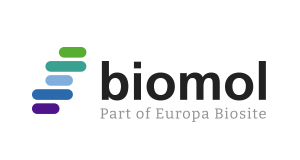LEC/NCC-4 (CCL16), human recombinant (rHuCCL16)
LEC/NCC-4 (CCL16), human recombinant (rHuCCL16)
Artikelnummer
BOL97326.1
Verpackungseinheit
1 mg
Hersteller
Biomol
Verfügbarkeit:
wird geladen...
Preis wird geladen...
Kategorie: Cytokines
Formulation: purified
Storage: -20°C
Weight: 11200 D
Description: Shows chemotactic activity for lymphocytes and monocytes but not neutrophils. Also shows potent myelosuppressive activity, suppresses proliferation of myeloid progenitor cells. Recombinant SCYA16 shows chemotactic activity for monocytes and THP-1 monocytes, but not for resting lymphocytes and neutrophils. Induces a calcium flux in THP-1 cells that were desensitized by prior expression to RANTES. (www.uniprot.org) Recombinant human CCL16 produced in E.coli is a non-glycosylated, polypeptide chain containing 97 amino acids and having a molecular mass of 11.2 kDa. Human CCL16, also called HCC-4, liver-expressed chemokine (LEC), and lymphocyte and monocyte chemoattractant (LMC), is a novel CC chemokine recognized by bioinformatics. NCC-4 cDNA encodes a 120 amino acids along with a 23 amino acids signal peptide that is cleaved to generate 97 amino acid protein. HCC4 is vaguely related to other CC chemokines, showing less than 30% sequence identity. Among CC chemokines, CCL-16 has the largest similarity to HCC-1. 2 potential polyadenylation signals are present on the human HCC-4 gene, and as a result, 2 transcripts containing roughly 1,500 base pairs and 500 base pairs have been detected. HCC-4 is expressed weakly by some lymphocytes, including NK cells, T cells, and some T cell clones. The expression of HCC-4 in monocytes is greatly upregulated in the presence of IL-10. CCL16 shows chemotactic activity for lymphocytes and monocytes rather than to neutrophils. NCC-4 has potent myelosuppressive activity, suppresses proliferation of myeloid progenitor cells. CCL16 demonstrates chemotactic activity for monocytes and thp-1 monocytes, rather than for resting lymphocytes and neutrophils. HCC-4 induces a calcium flux in thp-1 cells that desensitized prior to the expression of rantes.
Formulation: purified
Storage: -20°C
Weight: 11200 D
Description: Shows chemotactic activity for lymphocytes and monocytes but not neutrophils. Also shows potent myelosuppressive activity, suppresses proliferation of myeloid progenitor cells. Recombinant SCYA16 shows chemotactic activity for monocytes and THP-1 monocytes, but not for resting lymphocytes and neutrophils. Induces a calcium flux in THP-1 cells that were desensitized by prior expression to RANTES. (www.uniprot.org) Recombinant human CCL16 produced in E.coli is a non-glycosylated, polypeptide chain containing 97 amino acids and having a molecular mass of 11.2 kDa. Human CCL16, also called HCC-4, liver-expressed chemokine (LEC), and lymphocyte and monocyte chemoattractant (LMC), is a novel CC chemokine recognized by bioinformatics. NCC-4 cDNA encodes a 120 amino acids along with a 23 amino acids signal peptide that is cleaved to generate 97 amino acid protein. HCC4 is vaguely related to other CC chemokines, showing less than 30% sequence identity. Among CC chemokines, CCL-16 has the largest similarity to HCC-1. 2 potential polyadenylation signals are present on the human HCC-4 gene, and as a result, 2 transcripts containing roughly 1,500 base pairs and 500 base pairs have been detected. HCC-4 is expressed weakly by some lymphocytes, including NK cells, T cells, and some T cell clones. The expression of HCC-4 in monocytes is greatly upregulated in the presence of IL-10. CCL16 shows chemotactic activity for lymphocytes and monocytes rather than to neutrophils. NCC-4 has potent myelosuppressive activity, suppresses proliferation of myeloid progenitor cells. CCL16 demonstrates chemotactic activity for monocytes and thp-1 monocytes, rather than for resting lymphocytes and neutrophils. HCC-4 induces a calcium flux in thp-1 cells that desensitized prior to the expression of rantes.
| Artikelnummer | BOL97326.1 |
|---|---|
| Hersteller | Biomol |
| Hersteller Artikelnummer | 97326.1 |
| Verpackungseinheit | 1 mg |
| Mengeneinheit | STK |
| Reaktivität | Human |
| Wirt | Escherichia Coli |
| Produktinformation (PDF) | Download |
| MSDS (PDF) |
|

 English
English






